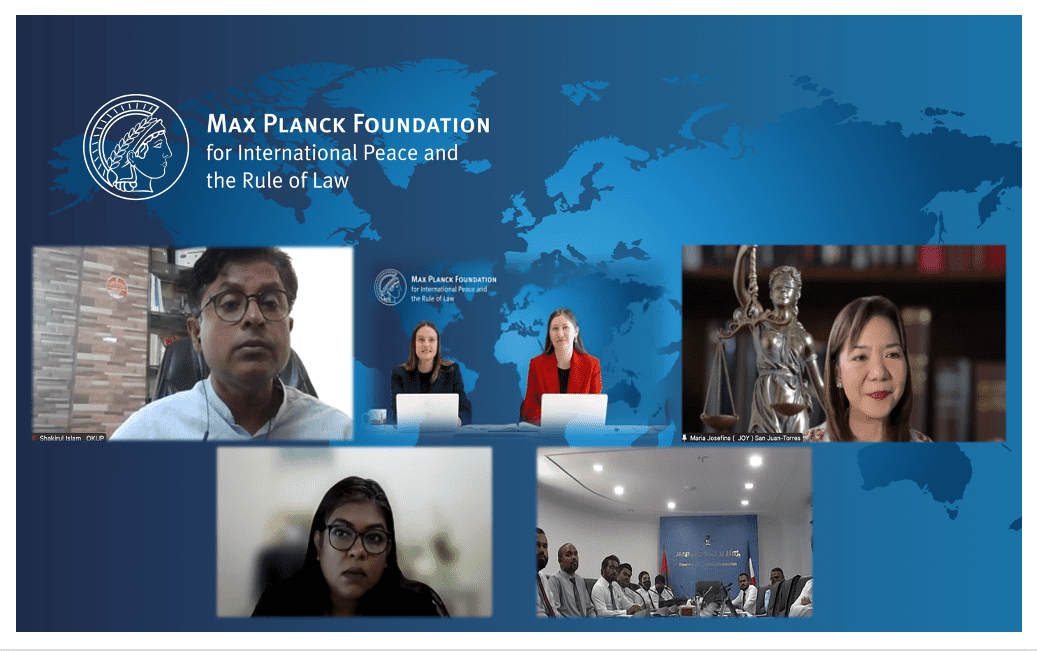Judges from all levels of the Judiciary of the Maldives joined an Online Panel Discussion on the 13 April 2023 to discuss the importance of the judiciary in advancing migrant workers’ rights, in particular access to courts and the various legal, accessibility and enforcement barriers that hinder it.
The Panel Discussion was organised by the Max Planck Foundation with the support of the Department of Judicial Administration and the Judicial Academy.
The Panel Discussion started with a brief presentation from Mr Shakirul Islam, Chair of Ovibashi Karmi Unnayan Program (OKUP) that supports returnee migrant workers. Based on interviews conducted with Bangladeshi migrant workers that have returned from the Maldives, Mr Islam described the difficulties that migrant workers face in the Maldives when attempting to assert their rights. Mr Islam has highlighted possible ways forward for extending the protection of rights of migrant workers in the Maldives.
Subsequently, Judge Maria Josefina G. San Juan-Torres (Region IV, District 1), from the Philippines, held a session on the role of judges, as dispensers of justice in ensuring access to justice to migrant workers, by protecting their rights in a comprehensive and integrated manner under the domestic and international law. Judge Torres highlighted the relevant international legal framework along with the general principles that are applicable to protect migrant workers’ rights, including procedural fairness, effective appeal or other substantive review by a competent, independent, and impartial judicial authority and the right to an effective remedy. Judge Torres underscored the nexus between migration and human rights and the importance of a partnership between stakeholders to contribute to the progress and protection of migrant workers’ rights.
The expert presentations were followed by a question and answer session, where participants were given the opportunity to address questions to the panellists on pertinent issues that are present in the Maldivian context. The application of the Prevention of Human Trafficking Act, No.12/2013 was discussed, along with practices of other states that are making use of a “joint and several liability” system to hold accountable all actors involved in recruitment-related offences.
This Panel Discussion is the fourth and final one in a series of Panels for the Judiciary of the Maldives and part of the project Stabilising the Rule of Law by Supporting the Reform Agenda of the Republic of Maldives generously funded by the German Federal Foreign Office.

